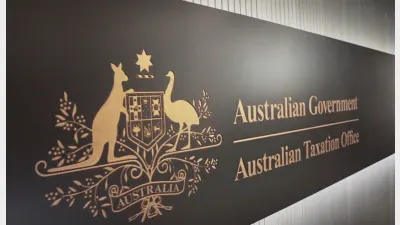Editorial: Are professional trustees an advantage?
This year’s Association of Superannuation Funds of Australia (ASFA) conference in Melbourne ought to represent an opportunity for the industry to take pause, draw breath, and review what represents one of the most important years the superannuation sector has ever experienced.
In the 12 months that have expired since ASFA held its last national conference in Adelaide, the industry has been witness to a range of administrative and regulatory changes that will inevitably serve to alter the texture and make-up of the industry.
While the implementation of the new choice of superannuation fund regime may sit at the top of the list of events that occurred in 2004-05, we must also consider the implications of the Government extending its co-contributions regime and its abolition the superannuation surcharge. We ought also to reflect upon the implications of trustee licensing.
Indeed, reflecting upon the things that were likely to most alter the superannuation industry this year, it was easy to get distracted by the introduction of choice of superannuation fund when, in reality, trustee licensing represented the most dynamic catalyst for change.
Anyone who doubts this fact need only consider this quote from the deputy chairman of the Australian Prudential RegulationAuthority (APRA), Ross Jones.
“Over a 10 year period the number of funds has fallen from over 5,000 to less than 1,200, and we expect [that number to fall to] around 400 to 450 funds by 30 June, 2006,”
Jones, addressing a seminar in China, was referring to the impact of trustee licensing and the fact that, by APRA’s own reckoning, upwards of 500 superannuation trustee entities will have exited the scene by the middle of next year.
It is also worth noting Jones’ view that the trusteeship of superannuation funds is increasingly becoming a ‘professional’ role.
Some serious questions need to be asked about these facts and whether, ultimately, the exit of so many entities and the ‘professionalisation’ of trusteeship represents a positive development for the superannuation industry.
What is disturbing about this fall-out from the trustee licensing exercise is that it carries with it a clear risk of further alienating ordinary superannuation fund members. Almost every survey of ordinary Australians tells us that they find superannuation a daunting topic to understand — something that is unduly complex and the preserve of so-called ‘experts’.
There is now a danger that with the ‘professionalisation’ of trusteeship roles, ordinary members will find themselves feeling even more isolated.
Whether it is freely acknowledged or not, a divide exists between financial institutions and their customers, which means those dealing with a bank or an insurance company often feel absolutely nothing in common with those sitting on the boards of these institutions.
Such divides are less evident in the case of mutual organisations such as credit unions and, it is arguable, such divides are also less frequently observed where superannuation funds have been concerned. All that is now in danger of being changed.
And what will have been achieved? Well, arguably a higher level of corporate and prudential governance within superannuation funds. But will the exercise ultimately prove to have been justified?
Arguably not. In truth, while APRA’s efforts to improve corporate governance and standards within superannuation funds are laudable, there have been remarkably few instances where ‘lay’ trustees have let their members down.
APRA quite rightly regulates the superannuation industry to protect the interests of superannuation fund members. However, it needs to remember that those interests extend beyond matters of corporate governance.
The consolidation of the superannuation industry resulting from trustee licensing may make life easier for APRA in its role as regulator, however the jury is still out with respect to the benefits it will deliver to members.
Recommended for you
Super funds are strengthening systems and modelling member benefits ahead of payday super.
The Australian Taxation Office (ATO) has approved real-time payments for superannuation, removing a major hurdle ahead of payday super reforms.
The responsible investment body has emphasised the importance of clear communication as ART takes a substantial shareholding in Tabcorp.
Australian super funds have posted early gains in FY26, driven by strong share market performance and resilient long-term returns.











